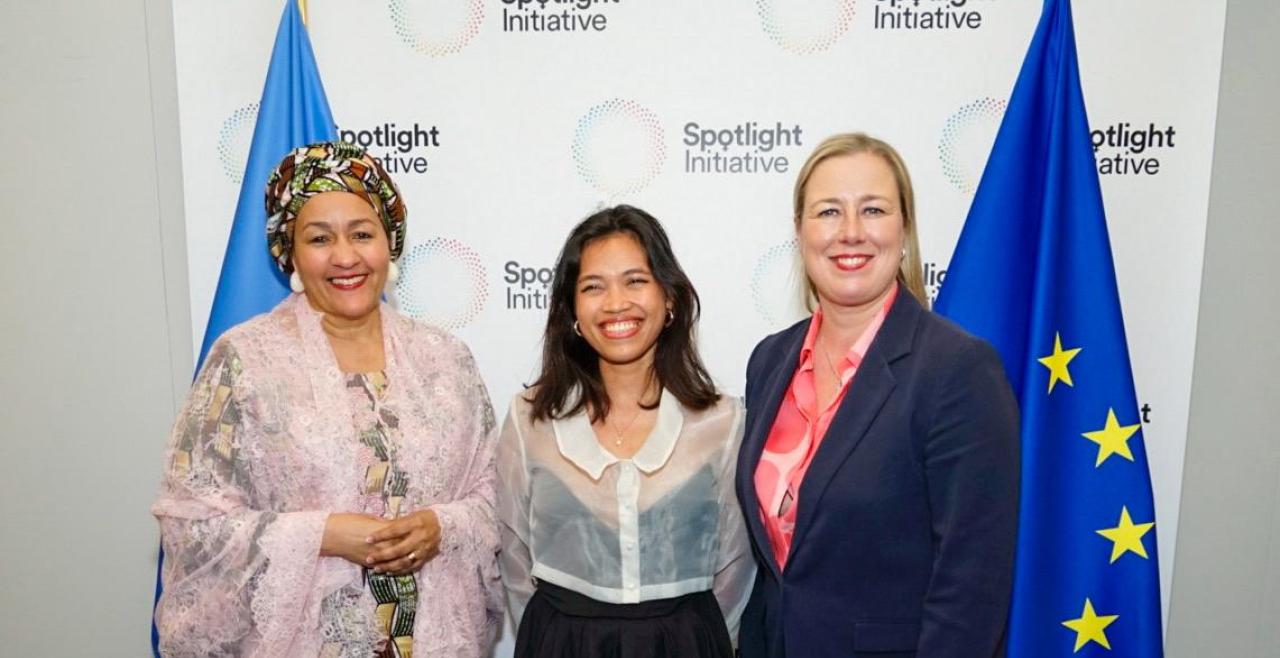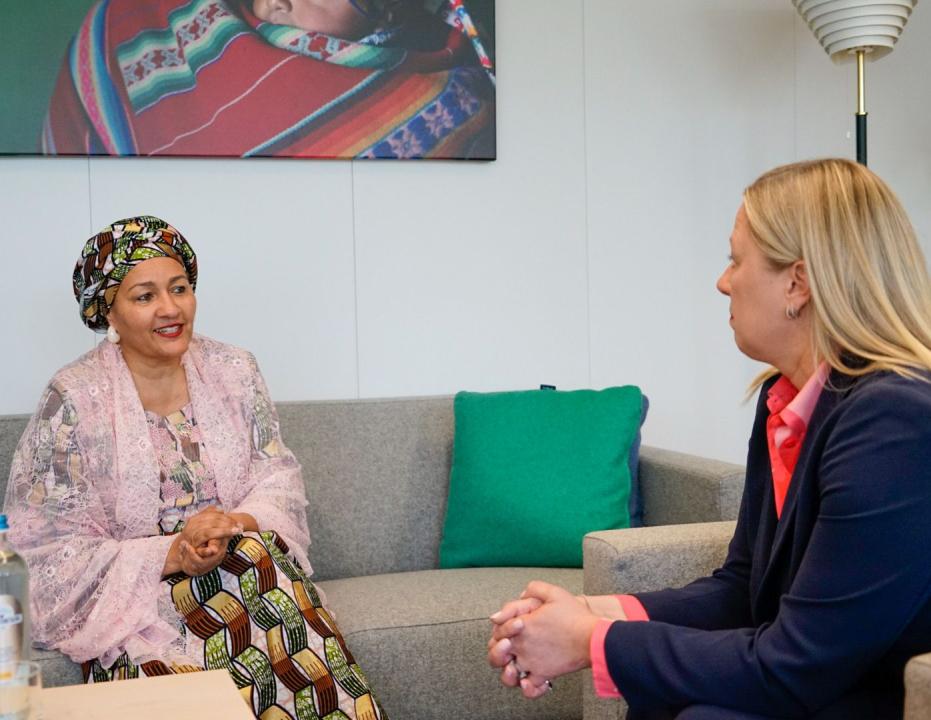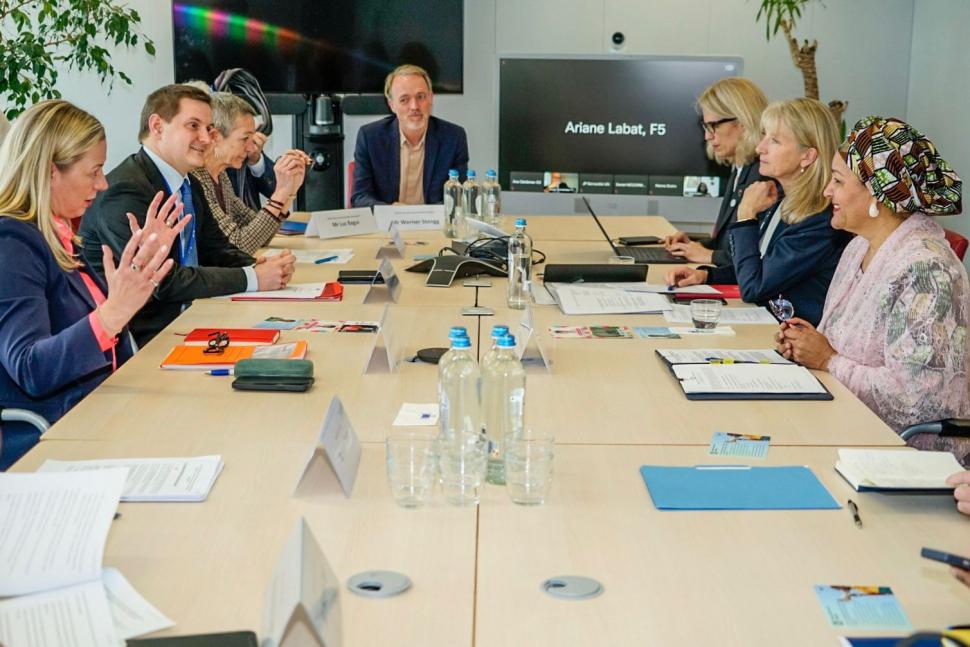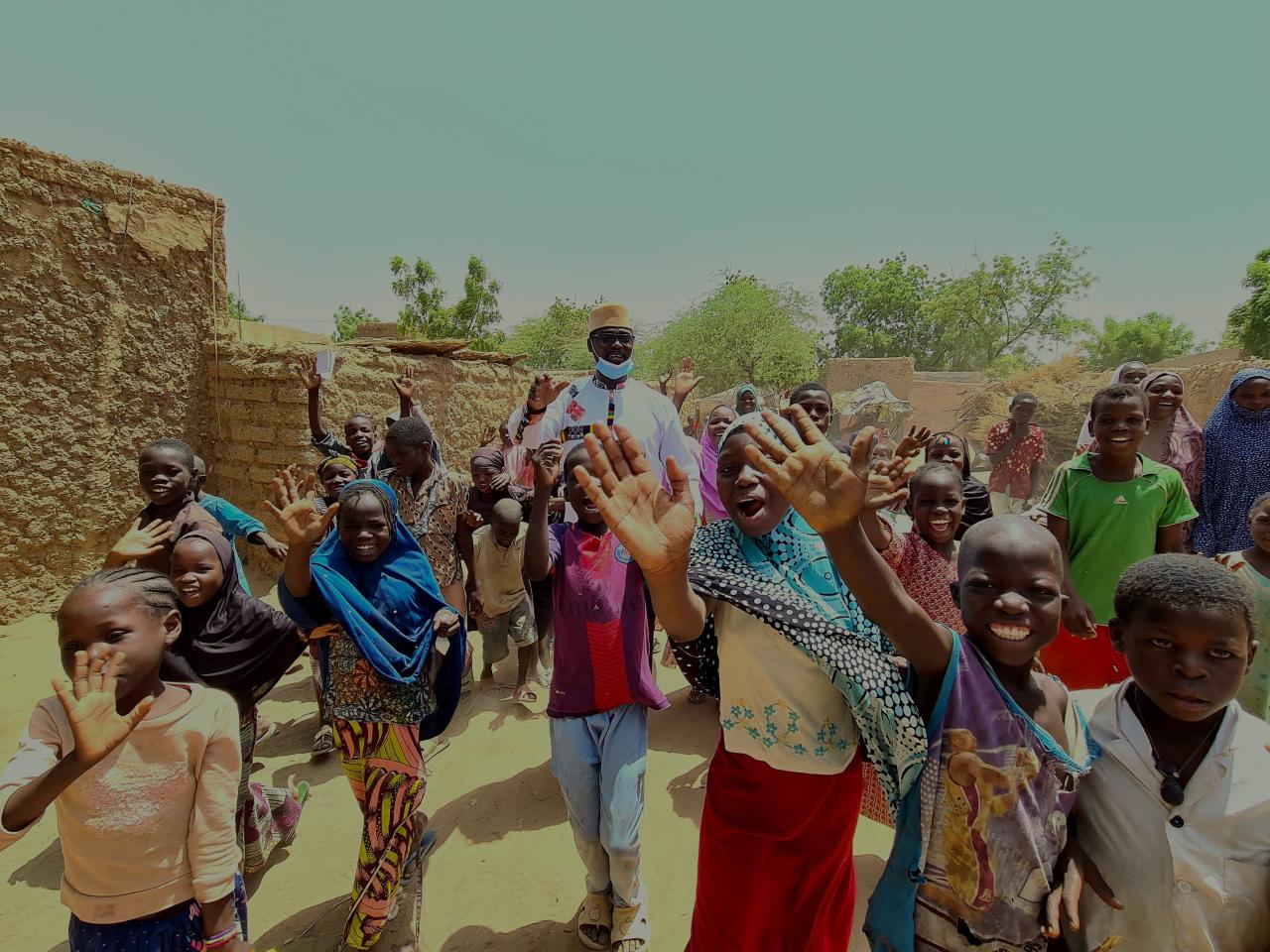Spotlight Initiative Governing Body renews commitment to ending violence against women and girls and plans second phase

BRUSSELS, Belgium - On 10 April, European Union Commissioner for International Partnerships Jutta Urpilainen and United Nations Deputy Secretary-General Amina J. Mohammed attended the Governing Body meeting of the Spotlight Initiative in Brussels. They were joined virtually by UN Women Executive Director Sima Bahous and in person by the Initiative’s Global Civil Society Reference Group Coordinator, Shamah Bulangis, to take stock of the Initiative’s first phase and plan for the future.
The meeting provided a platform to reflect on Spotlight Initiative's transformative impact and to discuss the challenges and opportunities that lie ahead for the second phase of implementation.
“I am very proud of how the Initiative has evolved,” said Ms. Urpilainen. “The EU support for Spotlight Initiative matched our continued commitment to supporting universal values, including gender equality and multilateralism, the two strengths on which we based this partnership.”
She noted that since 2019, the Initiative had resulted in a tenfold increase to national budget allocations for eliminating gender-based violence, more than 2.5 million women and girls accessing gender-based violence services, two million men and boys being educated on positive masculinity and that more than 1,750 civil society organizations (CSOs) had received financial support from the Initiative.
Ms. Mohammed thanked the EU for its “historic” contribution of 500 million Euros, which paved the way for the Initiative's first phase and prompted the United Nations to work in a more collaborative way.
“We were very conscious that we could make an impact but that we had to change the way we were working… and ensure that we could push the resources down to the ground,” said Ms. Mohammed, noting increased coordination within the UN, as well as meaningful partnerships with CSOs.
Ms. Mohammed highlighted the need to deepen partnerships with civil society even further in order to sustain the gains made, and the need to step up engagement with men and boys to create communities and households where every person’s “dignity is preserved.” She also raised concerns about the vulnerability of women and girls in a context of heightened conflict, crises and disasters — a concern echoed by UN Women Executive Director Sima Bahous.
“The world has changed greatly since 2017, when Spotlight Initiative was launched,” said Ms. Bahous. “We have seen the pandemic and the outcomes of the pandemic - more poverty and more violence against women of all kinds.”
Ms. Bahous reiterated the critical role of civil society organizations in the Initiative's second phase: “We have seen that the more money, resources and advocacy we can put toward grassroots and civil society organizations, the greater the results we will achieve.”
Coordinator of the Initiative's Global Civil Society Reference Group, Shamah Bulangis, said that Spotlight Initiative had helped to “put civil society at the table at the national and regional level with institutions, providing an opportunity for advocacy and course correction”. She urged a greater focus on support for women human rights defenders amid global backlash and highlighted the need for shared leadership with civil society actors in Spotlight Initiative's second phase.
“We really believe that Spotlight Initiative has resulted in an ending violence against women and girls model that is unique,” said Ms. Bulangis. “It’s not perfect but in its comprehensiveness, its inclusiveness, its focus on leveraging the strengths of civil society and government, it provides a robust structure for taking programming to a scale commensurate with the size of the problem.”
Ms. Urpilainen reiterated the EU’s commitment to the Initiative and to eliminating gender-based violence and celebrated the launch of three new Spotlight Initiative programmes in Ecuador, Uganda and Sierra Leone, as well as funding commitments from new donors.



